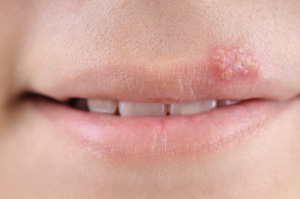Herpes Breakout
 The Truth About Herpes Breakout
The Truth About Herpes Breakout
The most common form of herpes breakout is genital herpes, an infection caused by the herpes simplex virus (HSV). There are two types of HSV, type 1 and type 2. Type 1 causes oral infections which usually erupt as cold sores. Type 2 most often is genital herpes, where the sores appear on the genitals, anus, thighs or buttocks. However, it is possible for either form of herpes to cause sores anywhere on the upper or lower body.
A genital herpes breakout for women affects the vulva and the vagina entrance. Sometimes a sore can also develop on the cervix. For men, the sores are most often on the end of the penis, or the foreskin and shaft of the penis. It is also possible to have sores on the testicles.
When you experience the herpes virus for the first time, it usually lasts for around three weeks. After the first herpes breakout, the periods of infection will be shorter. The first symptoms of genital herpes are feelings of burning, tingling, or pain, followed by the development of red spots in the area. These spots are usually very painful and turn into blisters, which are full of fluid. The blisters will eventually burst, scab over and heal--all in a time period of approximately ten days. Women can have discharges from the vagina and it may become very painful to urinate.
It is rare to have only one occurrence of genital herpes. Eighty percent of the people having one herpes breakout have recurring episodes. The average number is four times each year, though it varies person to person and year to year. There can be many years between one infection and the next for some people.
One of the biggest problems with herpes is that it is possible to have the herpes virus and not even know it. In fact, sixty percent of all the people who have herpes simplex virus do not know they have it. However, these people can transmit the virus to anyone with whom they have sexual contact. Because you can have and pass on the virus and not know it, it can come as a big surprise should you or your partner acquire the virus.
Herpes breakouts are brought on by a variety of physical and psychological factors. The biggest one is stress. Others include being run down and/or having a weakened immune system, being exposed to ultraviolet light (sun), menstruation, and drinking too much alcohol. The best ways to prevent spreading herpes are to abstain from sex when sores are present and to use a condom in-between occurrences.
If you suspect that you have herpes, see a doctor for diagnosis and treatment. Diagnosis can usually be accomplished visually by a doctor if you are in the midst of an outbreak. This is usually confirmed by a lab test of a swab of fluid from one of the blisters. Treatment is most often accomplished with an antiviral drug.
There are a few things you can do to be a little more comfortable with the pain of herpes and the discomfort you feel in the genital areas. Taking salt baths can soothe the sores, and pain relievers such as aspirin, acetaminophen, or ibuprofen can help. Wearing loose clothing will also be more comfortable.
One of the hardest things to do is tell a sexual partner that you have herpes. There is still a stigma of promiscuity attached even though that is usually far from the truth. Someone could be in a committed relationship for many years and have the herpes virus without knowing it. That’s why you should never jump to the conclusion that your partner has been unfaithful.
It is important to tell your sexual partner(s) that you have herpes. Timing is important. For instance, if your partner is stressed, angry, or overly emotional, wait for calmer time to talk to them. Herpes counseling is always available nearby no matter where you live, and so are herpes support groups. Herpes is not a lot of fun but it is a disease that can be successfully managed. If you do have herpes, act responsibly by telling your partner(s), getting treatment, and practicing safe sex.